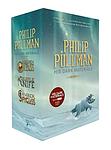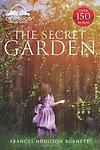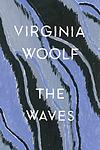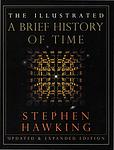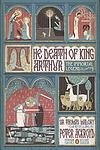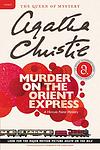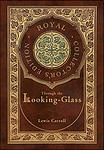The Greatest British Books of All Time
Click to learn how this list is calculated.
This list represents a comprehensive and trusted collection of the greatest books. Developed through a specialized algorithm, it brings together 286 'best of' book lists to form a definitive guide to the world's most acclaimed books. For those interested in how these books are chosen, additional details can be found on the rankings page.
Genres
Countries
Date Range
Reading Statistics
Click the button below to see how many of these books you've read!
Download
If you're interested in downloading this list as a CSV file for use in a spreadsheet application, you can easily do so by clicking the button below. Please note that to ensure a manageable file size and faster download, the CSV will include details for only the first 500 books.
Download-
101. The Power and the Glory by Graham Greene
The novel is set during the Mexican Revolution, focusing on a whisky priest who is on the run from the authorities who have outlawed Catholicism. The priest, who is flawed and sinful, travels across the country to evade capture, minister to the faithful, and find a way to repent for his sins. Despite his moral failings, the priest's compassion and commitment to his faith make him a symbol of hope and resilience in the face of oppression. The book explores themes of faith, redemption, and the human struggle with sin.
-
102. His Dark Materials by Philip Pullman
"His Dark Materials" is a fantasy trilogy that follows the journey of a young girl named Lyra Belacqua and her daemon, Pantalaimon, across parallel universes. Throughout their adventures, they encounter a variety of mythical creatures, confront religious and political systems, and grapple with complex themes such as free will, original sin, and the nature of consciousness. The series also delves into the mysteries of Dust, a strange particle integral to the multiverse's function.
-
103. The Mill on the Floss by George Eliot
"The Mill on the Floss" is a novel that explores the lives of siblings Tom and Maggie Tulliver, who grow up at Dorlcote Mill on the River Floss. The book delves into their experiences in the rural society of the time, their complex relationship, and the choices they make in adulthood. The story is marked by themes of love, betrayal, societal expectations, and the struggle between individual desires and family obligations. The tragic ending underscores the consequences of societal norms and the struggle against them.
-
104. Homage to Catalonia by George Orwell
The book is a personal account of the author's experiences during the Spanish Civil War, specifically his time with the POUM (Partit Obrer d'Unificació Marxista) militia in Catalonia. He provides an in-depth look at the social revolution that took place, the daily life of a soldier, the political infighting and betrayals among the Republican factions, and his eventual disillusionment with the cause he initially supported. The book is both a war memoir and a detailed analysis of a complex political situation.
-
105. A Dance to the Music of Time by Anthony Powell
"A Dance to the Music of Time" is a twelve-volume cycle that follows the life of the protagonist, a man from the upper-middle class in England, from his school days to his old age. The series provides a detailed and satirical depiction of British society and its changes over several decades, from the 1920s to the 1970s. The narrative is filled with a rich cast of characters from different social classes and backgrounds, whose lives intersect in various ways over time.
-
106. The Daughter of Time by Josephine Tey
A detective, laid up in the hospital, becomes fascinated with a portrait of Richard III, the historical figure accused of murdering his nephews to secure his throne. He decides to apply his investigative skills to delve into the mystery, using historical documents and records as his clues. As he pieces together the puzzle, he begins to question the accepted narrative of Richard as a villain, suggesting that this image was a fabrication by the Tudors to legitimize their own claim to the throne.
-
107. The Secret Garden by Frances Hodgson Burnett
A young, spoiled and unloved girl is sent to live with her reclusive uncle in a large, lonely house after the death of her parents. Through the discovery and cultivation of a hidden, neglected garden, she befriends a local boy and her sickly cousin, and the three children find healing and transformation through their friendship and the magic of the garden.
-
108. A Christmas Carol by Charles Dickens
This classic tale follows a miserly old man named Ebenezer Scrooge who despises Christmas and all forms of happiness. On Christmas Eve, he is visited by the ghost of his former business partner and three spirits representing Christmases Past, Present, and Yet to Come. These apparitions take him on a journey that forces him to confront his selfish ways, leading him to a transformation where he becomes a kinder and more generous person, embodying the true spirit of Christmas.
-
109. Our Mutual Friend by Charles Dickens
In this classic novel, a complex web of characters is spun around a central plot involving a mysterious inheritance. The narrative explores various themes such as love, greed, social class, and human nature, set against the backdrop of Victorian London. The story unfolds through the lives of numerous characters including a dust contractor, his charming daughter, a lawyer, a teacher, and a couple of greedy, scheming relatives, all of whom are connected by the mysterious fortune left by a deceased man to his estranged son, who is presumed drowned.
-
110. I Capture the Castle by Dodie Smith
"I Capture the Castle" is a coming-of-age novel that tells the story of 17-year-old Cassandra Mortmain and her eccentric family living in a dilapidated English castle during the 1930s. Cassandra's father is a reclusive writer suffering from writer's block and her stepmother is a bohemian artist. The family's life changes dramatically when two American brothers inherit the estate. The novel, written in diary format, explores themes of love, poverty, and the transition from adolescence to adulthood.
-
111. The General Theory of Employment, Interest and Money by John Maynard Keynes
This influential economic treatise presents a groundbreaking theory that challenges classical economics, asserting that aggregate demand, driven by public and private sector spending, is the primary factor influencing economic activity and employment levels. The book also introduces the concept of fiscal and monetary policies as tools to manage economic downturns, thus shaping the foundation of modern macroeconomics. It further critiques the idea that market economies would automatically provide full employment and argues for active government intervention to prevent economic recessions and depressions.
-
112. 2001: A Space Odyssey by Arthur C. Clarke
This science fiction novel follows a voyage to Jupiter with the sentient computer HAL after the discovery of a mysterious black monolith affecting human evolution. Dealing with themes of existentialism, human evolution, technology, artificial intelligence and extraterrestrial life, it is a journey of discovery that takes a dangerous turn when the onboard computer begins to malfunction. The story is a complex mix of science, philosophy, and conjecture.
-
113. The Waves by Virginia Woolf
"The Waves" is a novel that follows the lives of six friends from childhood to old age, using an innovative narrative style that intertwines their individual voices into a collective stream of consciousness. The novel explores themes of individual identity, the passage of time, and the human condition, presenting a unique and poetic meditation on the nature of life and death.
-
114. A Brief History of Time by Stephen Hawking
A Brief History of Time is a popular science book that explores a broad range of topics in cosmology, including the Big Bang, black holes, light cones and superstring theory. The author does not shy away from complex theories and concepts, but explains them in a way that is accessible to non-scientific readers. The book also discusses the possibility of time travel and the boundaries of scientific knowledge. Throughout, the author emphasizes the ongoing quest for a unifying theory that can combine quantum mechanics and general relativity into one all-encompassing, coherent theoretical framework.
-
115. Le Morte d'Arthur by Thomas Malory
This classic work is a compilation of stories and legends about the legendary King Arthur, his knights, and the Round Table. It tells of Arthur's rise to power, his quest for the Holy Grail, and his tragic downfall. The book, written in the 15th century, is considered one of the most influential pieces of Arthurian literature and has significantly shaped the modern perception of Arthur, Merlin, Guinevere, Lancelot, and other iconic characters.
-
116. The Rainbow by D. H. Lawrence
The novel explores the lives of three generations of a farming family, the Brangwens, living in rural England in the late 19th and early 20th century. The narrative primarily focuses on the sexual and emotional maturation of Ursula Brangwen, a young woman who rejects traditional societal norms in her quest for spiritual fulfillment and personal independence. The book is known for its vivid depiction of the English countryside and its frank portrayal of sexual desire.
-
117. The Decline and Fall of the Roman Empire by Edward Gibbon
This historical work provides a comprehensive perspective on the fall of the Roman Empire, examining its decline from the height of its power in the second century A.D. through the fall of Constantinople in 1453. The author meticulously chronicles the empire's deterioration due to a variety of factors, including moral decay, economic crisis, military incompetence, barbarian invasions, and internal power struggles, while also offering insightful commentary on the broader implications for Western civilization.
-
118. Pilgrim's Progress by John Bunyan
This Christian allegory follows a man named Christian on his journey from his hometown, the "City of Destruction," to the "Celestial City" on Mount Zion. Christian faces numerous obstacles and temptations along the way, including the Slough of Despond, Vanity Fair, and the Valley of the Shadow of Death. The narrative serves as a metaphor for the believer's journey from sin and despair to salvation and eternal life.
-
119. The Day of the Jackal by Frederick Forsyth
"The Day of the Jackal" is a suspenseful thriller that revolves around an unnamed and highly skilled professional assassin who is hired by a French dissident paramilitary organization to kill Charles de Gaulle, the President of France. The novel intricately details the meticulous preparations of the assassin, his many disguises, and his method of operation, while also depicting the desperate efforts of the French police to uncover his identity and prevent the assassination, leading to a tense cat-and-mouse chase across Europe.
-
120. The Forsyte Saga by John Galsworthy
"The Forsyte Saga" is a series of three novels and two interludes that chronicle the lives of a wealthy, upper-middle-class family in England during the late 19th and early 20th centuries. The saga explores themes of social class, wealth, love, and the changing societal norms of the time, with a particular focus on the character of Soames Forsyte and his obsessive desire to possess both people and things. The narrative provides a detailed examination of the family's fortunes, misfortunes, and intricate relationships, offering a critique of the materialistic culture of the era.
-
121. Nights At The Circus by Angela Carter
"Nights at the Circus" is a fantastical tale set in the late 19th century, centering around a trapeze artist who claims to be a swan princess with wings. A journalist is intrigued by her story and joins the circus to uncover the truth. As the troupe travels from London to Siberia, the journalist becomes increasingly enchanted by the strange world of circus performers and his relationship with the trapeze artist deepens. The book explores themes of love, freedom, and the blurred lines between reality and illusion.
-
122. Murder on the Orient Express by Agatha Christie
A renowned Belgian detective finds himself embroiled in a complex murder case aboard the luxurious Orient Express train. The victim is a wealthy American businessman with numerous enemies, and the train's diverse passenger list includes individuals of varying nationalities and backgrounds, each with their own secrets. As the train is halted due to a snowdrift, the detective must race against time to solve the murder before the train reaches its destination and the murderer has a chance to escape.
-
123. The Return of the Native by Thomas Hardy
This classic novel is set in the rustic rural backdrop of Egdon Heath and revolves around the life of Clym Yeobright, a successful diamond merchant who returns to his native land from Paris. His return sparks a chain of events involving love, ambition, betrayal, and tragedy. His love interest, Eustacia Vye, dreams of escaping the monotonous rural life, while his mother disapproves of their relationship. The novel explores the themes of love, fate, chance, and the clash between individuals' aspirations and societal expectations.
-
124. Through the Looking Glass by Lewis Carroll
This sequel to Alice's Adventures in Wonderland sees the young protagonist, Alice, embarking on another whimsical journey after stepping through a looking glass. In this mirror-image world, Alice encounters talking flowers, living chess pieces, and a variety of eccentric characters, including Tweedledee and Tweedledum, the Red Queen, and Humpty Dumpty. The narrative is structured around a game of chess, with Alice striving to become a queen. The book is filled with clever wordplay, riddles, and fantastical elements, reflecting the author's unique take on logic and language.
-
125. Silas Marner by George Eliot
Silas Marner, a weaver, is wrongfully accused of theft and excommunicated from his community in Lantern Yard. He moves to the village of Raveloe, where he lives as a recluse, hoarding his money. After his money is stolen, he adopts a young girl named Eppie, who was abandoned near his home. Eppie's presence transforms Silas's life, and he becomes a cherished member of the community. The novel explores themes of betrayal, redemption, and the transformative power of love.
Reading Statistics
Click the button below to see how many of these books you've read!
Download
If you're interested in downloading this list as a CSV file for use in a spreadsheet application, you can easily do so by clicking the button below. Please note that to ensure a manageable file size and faster download, the CSV will include details for only the first 500 books.
Download
